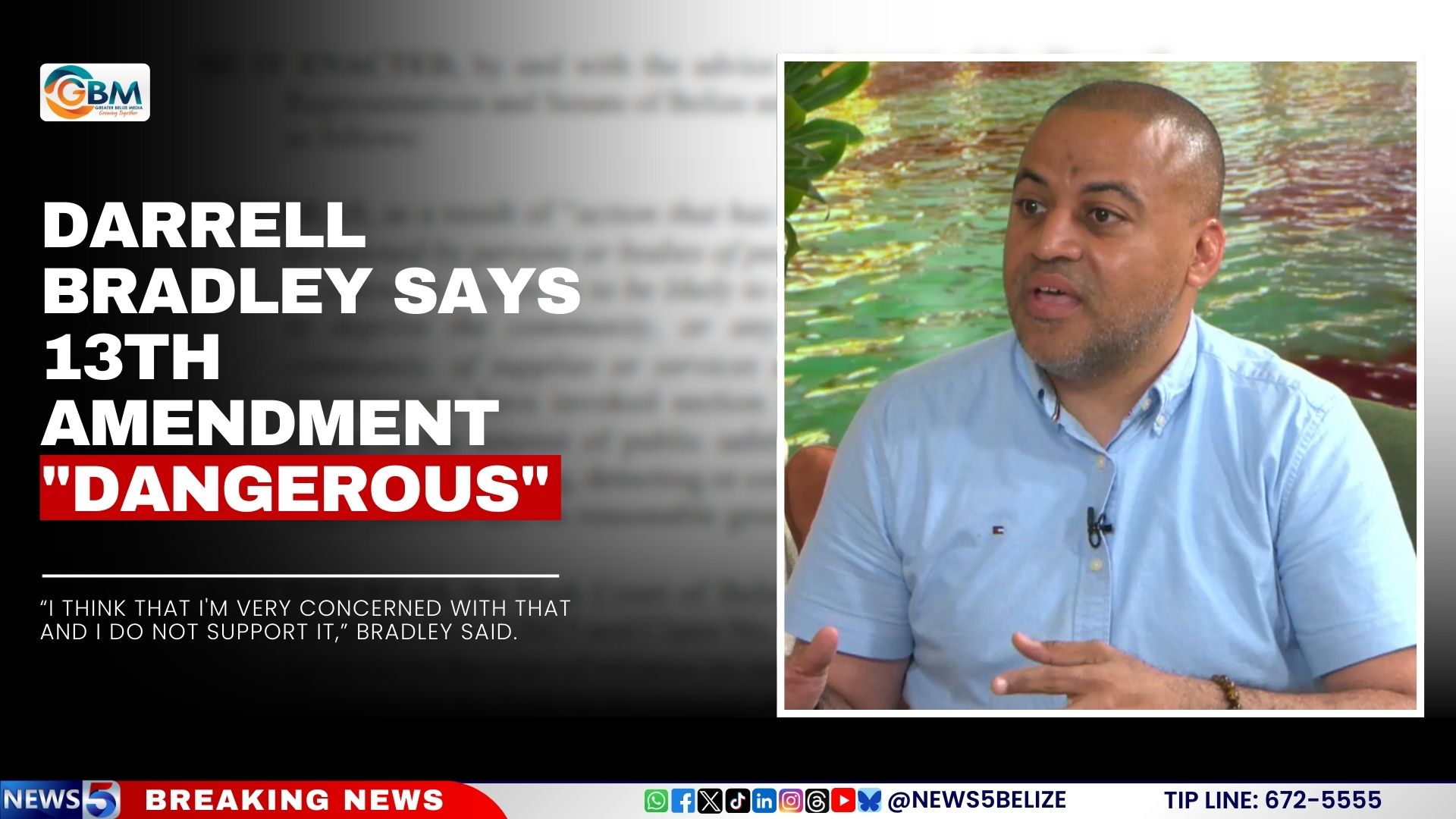Attorney Darrell Bradley says that the Belize Constitution (Thirteenth Amendment) Bill, 2025, is “dangerous.” Bradley shared his view on the matter during his appearance on Open Your Eyes today.
Bradley joins the growing list of legal voices expressing strong concerns over the proposed 13th Amendment. He argues that it risks harming marginalised Belizeans if not accompanied by wider reforms.
“I think that I’m very concerned with that and I do not support it,” Bradley said. “The reason I don’t support it is because you cannot deal with fundamental changes in one sense and not deal with structural changes in the other.”
Bradley explained that granting new powers in a system already marked by inequality could deepen social injustices. “That type of power in a system overall that has inequalities and structural problems can endure to the detriment of a certain element of society, which we’ve oftentimes punished,” he warned.
The proposed 13th Amendment bill introduces several significant changes to Belize’s legal framework in the fight against crime. One key provision allows the Governor General, acting on the advice of the National Security Council, to declare any part of the country a “special area.” In these zones, certain constitutional rights, such as freedom of movement and protection from warrantless searches, could be suspended to address security threats. The bill also proposes the creation of a specialised “Gun and Gang Court,” which would combine the powers of both the Magistrate and High Courts to expedite the prosecution of gang-related cases. Additionally, the legislation includes a retroactive clause that would validate all past States of Emergency and regulations, even those previously declared unlawful, by deeming them constitutional under the new law.
While he acknowledged that Belize faces serious crime challenges, Bradley argued that major constitutional changes must come with safeguards and broader social reforms to balance their impact. “Those kinds of fundamental changes to our constitution and our democratic tradition must be done within the context of other structural changes that rebalances the negative harm,” he said.
Bradley also questioned whether adequate protections are in place to prevent abuse of expanded police powers. “How can we prevent the fact that this tremendous change will not be abused by police officers, will not be abused by the system? I am not satisfied that that is the case,” he said bluntly.
